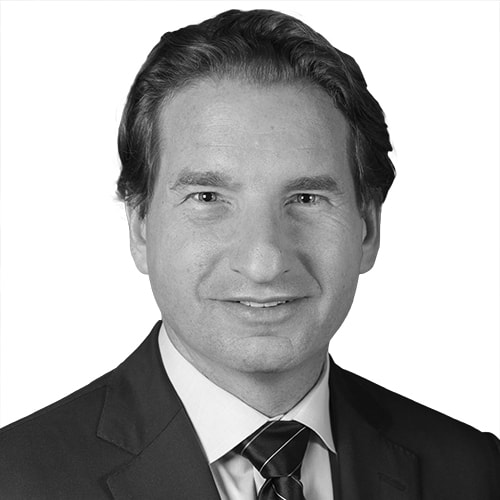Public trust in elected officials is at an all-time low, and it’s no surprise why. Between the gerontocracy that controls our governing bodies, the corrupting influence of money in politics, a thriving anger-tainment industry, and a political culture that places self-preservation over principle, it’s imperative that we take steps to restore Americans’ faith in our democracy.
Take Sen. Dianne Feinstein, a trailblazing and fierce advocate for Californians, and a remarkable American. After battling a severe case of shingles as she approaches her 90th birthday, the senator has returned to Washington, but accounts from colleagues, reporters, and staff paint a troubling picture: The senator’s health and mental acuity render her unable to represent her constituents and fulfill the responsibilities of her office. She—or those on whom she relies—must now decide whether to protect the senator’s personal interest or our nation’s best interests.
When I made headlines for calling on Sen. Feinstein to resign, it was never a question of her qualifications or character, rather of her competency to serve. What I said out loud is the same sentiment shared by almost all of my colleagues in private; by choosing to remain in the Senate, Sen. Feinstein risks tarnishing her remarkable legacy and the sacred oath she took as a United States senator.
But this is about more than one individual—it’s about an institution that too often fails to place the people we serve over the politics of parties. Corrupt crooks like Rep. George Santos (R-NY)—whose lies and corruption have brought shame to the People’s House—should be expelled from the institution.
As members of Congress, we are sworn to uphold an oath—not to protect a political majority at all costs, but to protect and serve our country, our constituents, and our democracy. The responsibilities of the offices we hold must be placed above the job security of the individuals occupying them.
Unfortunately, there are few mechanisms for holding members of Congress accountable once elected. I served on the House Ethics Committee for four years. With five Democrats and five Republicans, you can imagine what often transpired behind closed doors: gridlock and abdication.
Furthermore, the Department of Justice regularly asked us to stand down when it was investigating a member of Congress, rendering the committee useless in regulating House members in the most egregious cases. It’s a body lacking the resources or structure to deliver the expeditious accountability Congress needs.

Rep. George Santos heads to the floor of the House of Representatives for a vote on a Republican motion to refer a Democratic-sponsored resolution to expel Santos from the House to the House Ethics Committee instead of an immediate expulsion vote, on Capitol Hill in Washington, on May 17, 2023.
Evelyn Hockstein/ReutersIf elected leaders continue doing what’s politically expedient over what is right, this crisis of confidence and trust will only get worse.
So, how can we ask the American people to trust us if we refuse to be honest with them?
How can we restore faith if we refuse to do what’s right and instead engage in this repulsive, relentless pursuit of power?
I’m in the business of practicing what I preach—and I’ll keep doing it, no matter the party in question.
Calling out bad behavior is a beginning, but building a government that is more accountable to the highest standards of ethics, competency, and honesty will require action.
I believe, with straightforward reforms and determined optimism, we can begin to repair our broken politics and restore Americans’ faith in their government.
We need change, and we need it now. So, let’s get to work:
Tenure: High-functioning organizations become so by building strong benches and limiting the tenure of leaders. We must consider adopting term limits for our judicial and legislative branches, committee chairs, and party leaders. Doing so will foster a culture of new ideas, perspectives, and approaches, and elevate Americans’ collective interests over the individual pursuit of power.
Competency: Federal employees, intelligence officials, and military personnel are subject to scrutinous background checks before obtaining security clearance to access classified material and intelligence, and it’s time we require those elected to public office to submit to the same scrutiny. Such precautions are in America’s best interest, and I’ll soon be reintroducing legislation to require it.

Sen. Dianne Feinstein takes her seat for a Senate Judiciary Committee executive business meeting to vote on legislation and pending nominations before the committee, on Capitol Hill in Washington, on May 11, 2023.
Kevin Lamarque/ReutersEthics: Real and perceived patterns of self-enrichment have profoundly damaged Americans’ trust in their elected leaders, and we must raise the standards of ethical behavior for all public officials. The Ethics Committee should be resourced and empowered to perform its job in an expeditious manner. Tradable assets should be placed in qualified blind trusts, as I did after entering Congress, to ensure members aren’t profiting from information obtained through official work. Transparency and reporting requirements should be enhanced and such information must be made easily accessible.
We must also work to reverse the Supreme Court’s disastrous Citizens United vs. FEC decision, and reform the pay-to-play campaign finance system that results in members of Congress spending a disproportionate amount of their time with people and organizations of wealth and power. As the only member of Congress who refuses all campaign contributions from federal lobbyists, PACs, special interests, and other members of Congress and their leadership PACs, I’m walking the talk—but it’s awfully lonely.
Respect: An anger-tainment industry that thrives on stoking division and hyper-partisanship, and the echo chambers on our handheld screens leave many Americans doubting that cooperation and collegiality is even possible any longer.
But I say it absolutely is!
We should incentivize consensus-seeking candidates to run for office by promoting ranked choice voting, which ensures the winner secures a majority of votes and rewards the candidate(s) who prioritize decency over division. Already employed in Australia and Ireland, ranked choice voting was recently adopted by Maine and Alaska, and is successfully being used in hundreds of municipalities throughout the United States.
And we should break bread, share personal stories, and seek to understand perspectives of people who think, eat, pray, and vote differently, as I have done in Common Ground Workshops, which bring together six Democrats and six Republicans for a meal and facilitated discussion.
Trust is the foundation of human relationships and the one between citizens and our government. Securing that trust requires vigilance and investment—in both people and systems.
Improving such systems requires courage: the courage to acknowledge our deficiencies, to say publicly what most discuss privately to challenge the status quo, and to place the interests of the American people ahead of personal political interests.
I commit to demonstrating that courage inside of Congress, but have a request of you to help us outside of Congress.
It’s time for pragmatic progressives and collegial conservatives to get off the sidelines, roll up your sleeves and encourage participation in public service; to inspire more Americans to vote in primaries and general elections and employ the tools of transparency to ensure America’s government is populated with the most ethical, competent, and principled people possible.
That doesn’t require an act of Congress, just action by our communities.
Keep the faith, and let’s get to work!
Dean Phillips is a father, businessman, civic leader, eternal optimist, and Representative for Minnesota’s 3rd Congressional District.









